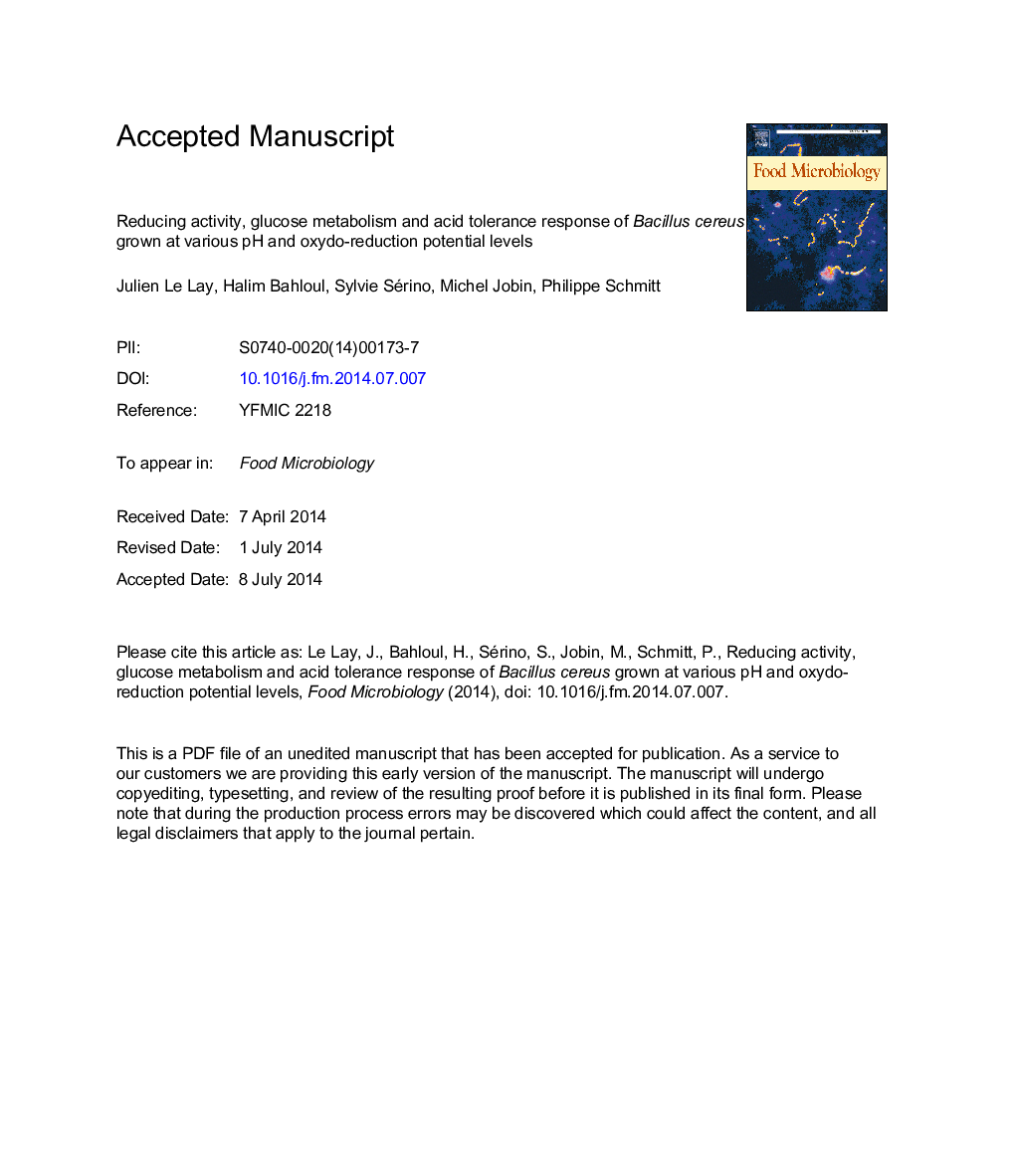| Article ID | Journal | Published Year | Pages | File Type |
|---|---|---|---|---|
| 6288562 | Food Microbiology | 2015 | 30 Pages |
Abstract
Bacillus cereus is a major foodborne bacterial pathogen able to survive a large number of physical-chemical stresses. B. cereus encounters different pH and redox potential (Eh7) levels during its passage through the gastrointestinal tract. Analysis of the combined influence of pH and redox stresses on B. cereus F4430/73 physiology found that B. cereus F4430/73 growth at pH 7.0 at 37 °C had strong reducing capacities, with a total change of 315 mV from an initial redox value of +214 ± 17 mV. The combination of low Eh7 and low pH led to a drastic reduction of growth parameters compared to oxidative Eh7 and neutral pH. Metabolic analysis showed that low pH significantly modifies glucose fermentative metabolism, with changes including decreased production of acid metabolite (acetate, lactate, formate) and increased production of 2,3-butanediol. Low Eh7 slightly enhanced the acid-tolerance response of B. cereus whereas low pH pre-adaptation led to thermal stress cross-protection. These results highlight new mechanisms that bring fresh insight into B. cereus pH and redox stress adaptations.
Related Topics
Life Sciences
Agricultural and Biological Sciences
Food Science
Authors
Julien Le Lay, Halim Bahloul, Sylvie Sérino, Michel Jobin, Philippe Schmitt,
